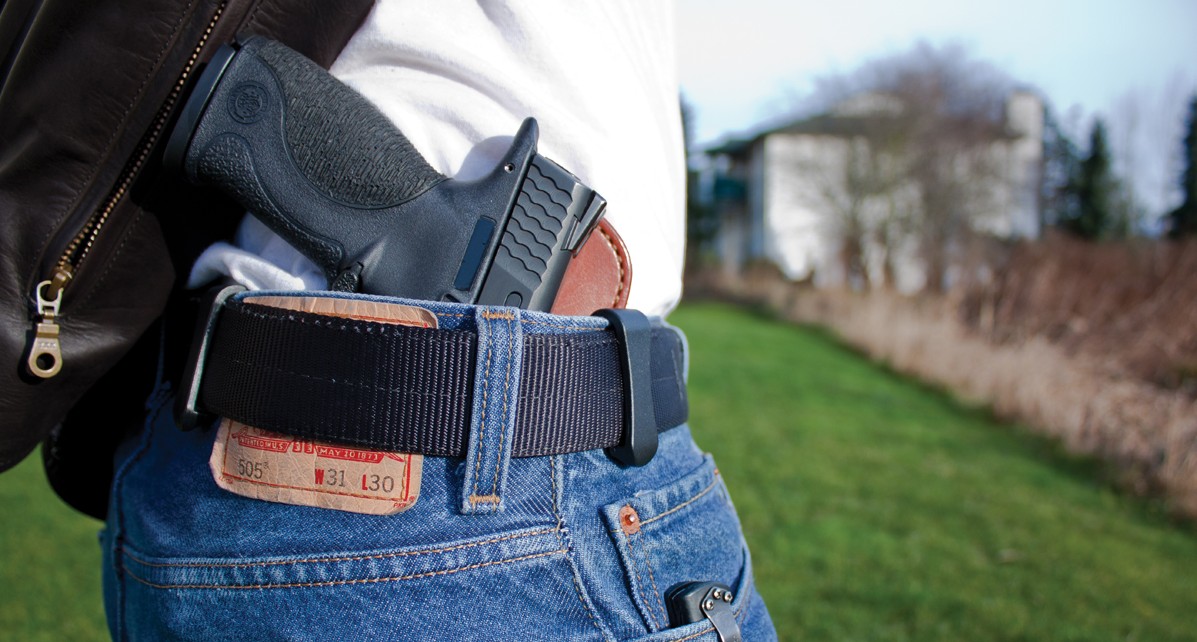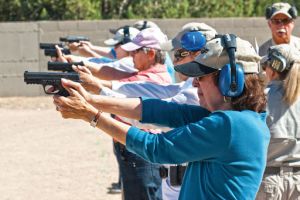

In 2011, Wisconsin passed a law allowing licensed individuals to carry a concealed firearm in public. The law also allows an individual to carry a concealed firearm in his or her own dwelling or place of business or on land that he or she owns, leases, or legally occupies, even without a license.
Under the new law, Wisconsin is a “shall issue” state, meaning that the Wisconsin Department of Justice (“DOJ”) must issue a license to carry a concealed weapon if the applicant meets certain qualifications. More specifically, DOJ must issue a license to any individual who submits an application unless he or she:
· Is less than 21 years of age;
· Is prohibited under federal or Wisconsin law from possessing a firearm;
· Is not a Wisconsin resident; or
· Has not provided proof of training (as described below).
The Wisconsin law also allows an individual to petition the court in the county in which he or she resides for an emergency license to carry a concealed weapon.
Concealed Carry Laws
If the firearm is in any way concealed or hidden, you are required to have a valid concealed carry weapon (CCW) license to carry it in public. There are certain requirements you must meet to be eligible for a CCW license, however. These requirements include being over the age of 21, never having been convicted of a felony, and being legally permitted to possess a firearm under both state and federal laws. Wisconsin also requires all CCW licensees to provide proof that they have completed adequate training prior to receiving their CCW license.
Still, even if you do have a CCW license, this does not mean you have a free pass to carry your weapon wherever you would like. There are still certain places that firearms are not permitted. For example, any federal property is off-limits for concealed carry. Individual business owners, property owners, landlords, and even employers can also prohibit firearms from being present on their property, as long as proper signs are displayed.

Firearm Safety Training
The proof of training requirement may be met by any of the following:
· A hunter education program established under Wisconsin law or a substantially similar
program in another state, country, or province;
· A firearms safety or training course:
o Offered by a law enforcement agency;
o Conducted by a national or state organization that certifies firearms instructors;
o Taught by an instructor who is certified by a national or state organization that certifies firearms instructors; or
o Taught by an instructor who is certified by DOJ;
· A firearms safety or training course that is offered to law enforcement officers or to
owners and employees of licensed private detective and security agencies; or
· Documentation that the individual completed military, law enforcement, or security
training that gave the individual substantially equivalent experience with firearms.
Duration and Renewal
A Wisconsin license to carry a concealed weapon is valid for 5 years. DOJ conducts a background check upon renewal, but renewal applicants are not required to complete further firearms safety training or testing.
Open Carry Laws and Limitations
All states are different when it comes to carrying firearms in public. Some states may require you to obtain a permit simply just to purchase and/or carry your firearm. Like other states, Wisconsin is an open carry state, meaning anyone who is over the age of 18 and is legally permitted to possess a firearm can carry one in public as long as it is not concealed. There are limitations to that rule, however. You are prohibited from openly carrying a firearm in the following places in Wisconsin:
· A police station, sheriff’s office, or state patrol station
· A prison, jail, or any kind of correctional facility
· Any secured unit or section of a mental health facility
· County, state, or federal courthouses
· Municipal courtrooms if a court is in session
· Any area beyond a security checkpoint in an airport
· Any area within the grounds or premises of a school
· In a tavern or bar, unless you have a CCW license
· On any property belonging to the U.S. government
Both the Wisconsin state constitution and the Federal Constitution give citizens the right to possess and carry firearms, but there are limitations to those freedoms. If you have been charged with illegal firearm possession, you should immediately speak with an experienced criminal defense attorney.
Contact us today to set up a free consultation. Please contact us by text or phone at (414) 774-6000 or email at laura@jlfwisconsin.com anytime.
*Any articles in the Libra or posted by Jones Law Firm LLC are not legal advice for a particular client or situation. Further no attorney-client relationship is intended or created with this post.*